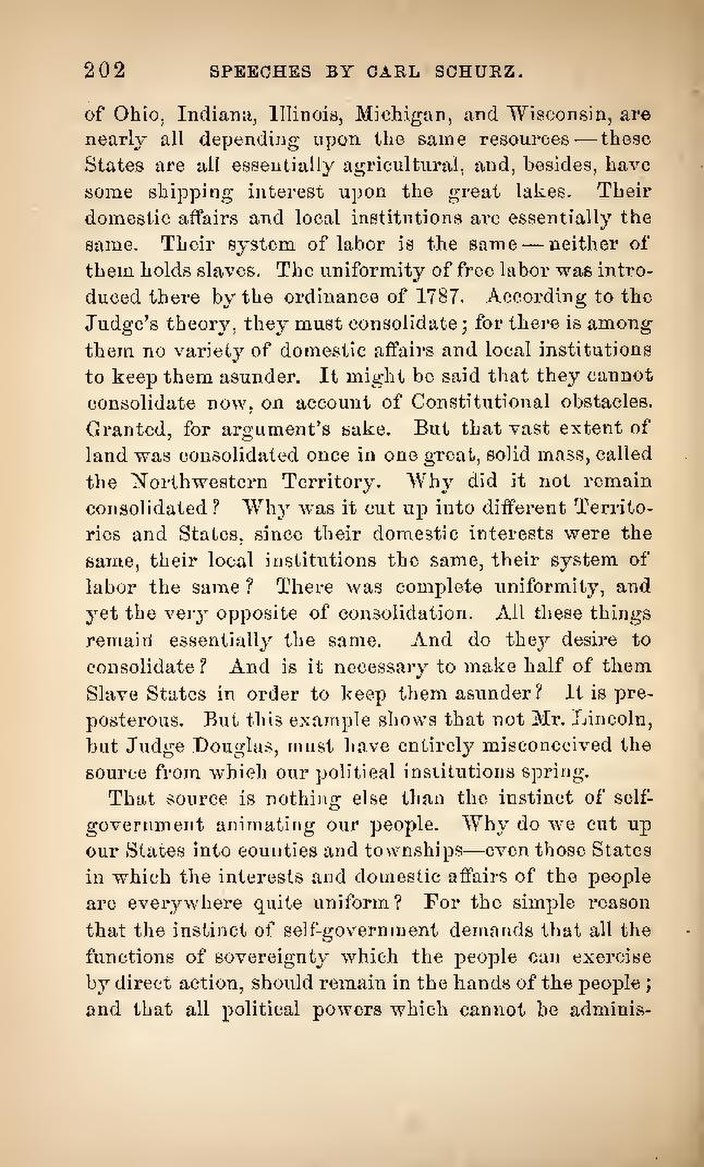of Ohio, Indiana, Illinois, Michigan, and Wisconsin, are nearly all depending upon the same resources—these States are all essentially agricultural, and, besides, have some shipping interest upon the great lakes. Their domestic affairs and local institutions are essentially the same. Their system of labor is the same—neither of them holds slaves. The uniformity of free labor was introduced there by the ordinance of 1787. According to the Judge's theory, they must consolidate; for there is among them no variety of domestic affairs and local institutions to keep them asunder. It might be said that they cannot consolidate now, on account of Constitutional obstacles. Granted, for argument's sake. But that vast extent of land was consolidated once in one great, solid mass, called the Northwestern Territory. Why did it not remain consolidated? Why was it cut up into different Territories and States, since their domestic interests were the same, their local institutions the same, their system of labor the same? There was complete uniformity, and yet the very opposite of consolidation. All these things remain essentially the same. And do they desire to consolidate? And is it necessary to make half of them Slave States in order to keep them asunder? It is preposterous. But this example shows that not Mr. Lincoln, but Judge Douglas, must have entirely misconceived the source from which our political institutions spring.
That source is nothing else than the instinct of self-government animating our people. Why do we cut up our States into counties and townships—even those States in which the interests and domestic affairs of the people are everywhere quite uniform? For the simple reason that the instinct of self-government demands that all the functions of sovereignty which the people can exercise by direct action, should remain in the hands of the people; and that all political powers which cannot be adminis-
